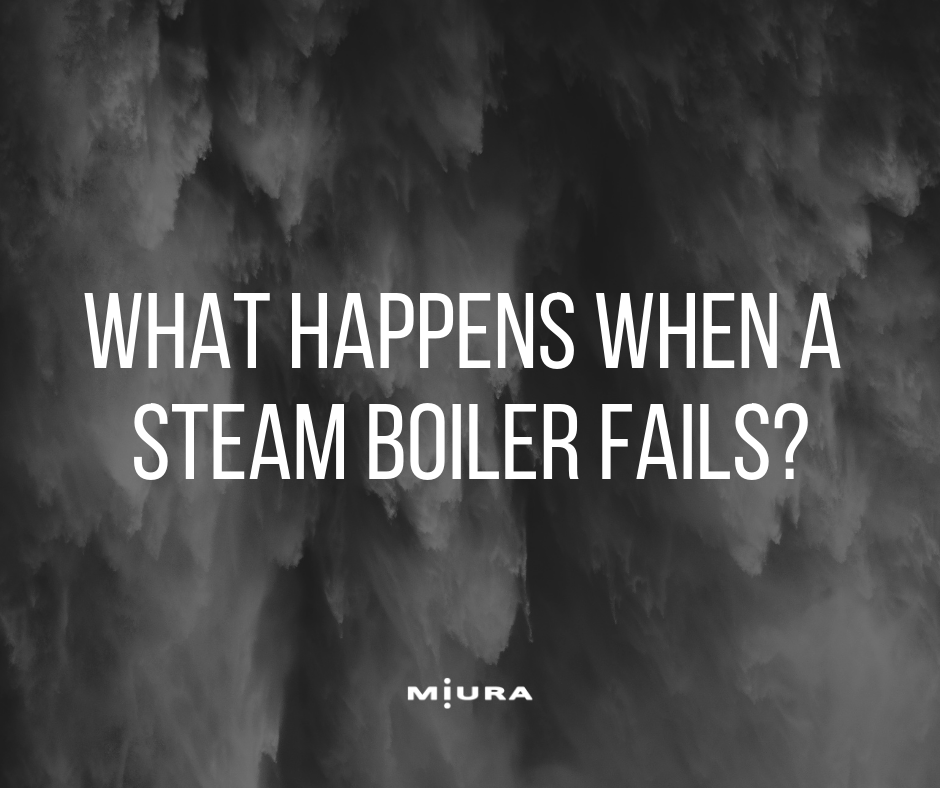 Any facility that requires an industrial steam boiler to operate always needs to monitor that boiler for safety reasons. While boiler failures have become more and rarer over time as technology has improved, there is always the risk that something unexpected will happen. Of course, when a boiler fails, how serious the consequences are can depend on the type of boiler.
Any facility that requires an industrial steam boiler to operate always needs to monitor that boiler for safety reasons. While boiler failures have become more and rarer over time as technology has improved, there is always the risk that something unexpected will happen. Of course, when a boiler fails, how serious the consequences are can depend on the type of boiler.
Conventional Fire Tube Boilers
A failure with a traditional fire tube boiler can have catastrophic consequences. These boilers contain several gallons of water that essentially acts as a heat shield between the metal tubes the boiler’s burner and flame. If the water level starts to run below what is considered the normal operating level, the metal inside the boiler starts to shrink. If a large volume of cold water is then introduced into the boiler to replenish the water supply, metal can rapidly expand, possibly resulting in an explosion that literally blows the doors off the boiler.Such an explosion can cause parts of the boiler that weigh thousands of pounds to detach and go flying in any direction, often destroying the walls of the boiler room itself. Needless to say, this is a dangerous situation for anyone working inside the boiler room or steam plant, as well as anyone else who just happens to be in the vicinity at the time of the explosion. In short, a fire tube boiler failure can cause extensive property damage, as well as injuries or casualties.
Modern Water Tube Boilers
Fortunately, water tube boilers like the ones manufactured by Miura are far less dangerous in cases of failure. Miura’s design calls for a minimal amount of water to be inside the boiler at any given time. It’s roughly 10% of the water inside a traditional fire tube boiler. More importantly, that water is confined within the tubes. Even if one of the tubes ruptures, the problem is only within that one tube and not the entire boiler. This helps to prevent any situation in which the boiler has to relieve itself of a large amount of pressure all at once, making a serious explosion virtually impossible.The American Society of Mechanical Engineers has tested Miura boilers and found that they relieve any excess energy through their stack rather than blowing the doors of the boiler off. This would help to minimize the damage in the rare event that a Miura boiler explodes. Of course, with more than 200,000 Miura vessels in operation throughout the world, there has never been a report of a catastrophic explosion.
The Safe Choice for Boilers
When it comes to boiler safety, there should be no doubt that Miura is the best choice. In addition to a design that’s inherently safer and a flawless track record for avoiding serious explosions. Miura has a number of safety protocols in place to ensure every boiler operates in a safe manner. There is even a monitoring system in place so that minor issues can be addressed before they lead to more serious problems. In fact, safety is a big reason why businesses in a number of industries have chosen to install Miura boilers.“The thing that’s huge for us is everybody’s concerned about boilers exploding,” says Mike Reibar, who uses Miura boilers at his distillery, The Dancing Goat. “I think Miura’s small water content feature means that this never has to be a consideration. There’s no fear of impending doom that the boiler’s going to explode and fly 800 feet into the residential area.” Contact Us




